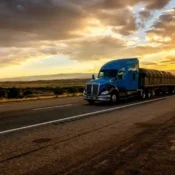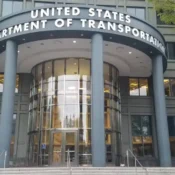
Federal court rules sleeper berth time beyond 8 hours must be paid
A federal appeals court ruled in December that company team drivers’ time spent in the sleeper berth beyond eight hours is compensable under the Fair Labor Standards Act.
Table of Contents
In a case involving CRST Expedited and CRST International, both of which use the team-driving model extensively, the First Circuit Court of Appeals was asked to decide whether time spent in the sleeper berth is considered “on-duty” within the meaning of Department of Labor regulations. If so, the court was asked, must CRST pay “a driver who is on duty for 24 hours or more for time that driver spends in the sleeper berth in excess of eight hours within a full 24-hour period.”
The case originated when Juan Carlos Montoya and other former CRST trainee drivers sued the company in January 2016, claiming the company’s compensation policies violated the Fair Labor Standards Act. CRST has not responded to requests for comment on the case.
Court documents from the appeals court said that CRST’s team-based driver training program is “uncommon,” noting that it is one of few fleets that trains drivers in team operations. “CRST’s approach allows the company to keep their trucks in near continuous motion, for multiple days, while complying with DOT regulations limiting the hours a driver can spend behind the wheel,” the ruling said.
The court noted that when in the sleeper berth, “drivers are at liberty to pursue their own activities within the confines of the space and facilities provided to them,” including making food, browsing the internet, reading, watching TV and movies, and sleeping.
While DOT regulations govern how much time a driver can work and how long they must be off-duty, compensation is covered by different regulations issued by the Department of Labor. The court said that DOL regs provide that employers can exclude a sleeping period of no more than eight hours per day when calculating an employee’s compensation.
“CRST calculates the pay owed to team drivers according to the total number of miles dispatched to the team for the shipment,” the court said. “Each member of the driving team is paid one half of the total number of miles attributed to the shipment at a rate of pay that corresponds with the driver’s level of experience, with less experienced drivers receiving a lower rate of pay per mile. Thus, the hourly wage of the drivers can be calculated by dividing their received pay by the total number of hours worked during the pay period.”
The court added that the company “does not count time spent in the sleeper berth as hours worked and so does not include the sleeper berth hours in the calculation of the drivers’ hourly wage. If the sleeper berth time is counted as hors worked, however, CRST’s drivers receive an hourly wage that falls short of the minimum wage under the FLSA.”
Montoya and other drivers’ claims allege that CRST didn’t pay drivers for hours spent in the sleeper berth beyond the DOL’s excludable eight-hour sleeping period, falling short of the hourly minimum wage required by the FLSA. A previous ruling by the U.S. District Court for the District of Massachusetts sided with the drivers, finding that sleeper berth time exceeding eight hours is compensable under the FLSA. CRST appealed the ruling.
What is compensable under FLSA?
The appeals court cited a Supreme Court decision that described work under the FLSA as “physical or mental exertion (whether burdensome or not) controlled or required by the employer and pursued necessarily and primarily for the benefit of the employer and his business.” SCOTUS has since clarified that this “exertion” can be negligible, as an “employer, if he chooses, may hire a man to do nothing, or to do nothing but wait for something to happen.”
In cases involving waiting, the critical question, the court said, is whether an employee is “engaged to wait” (which is generally compensable) or “wait[ing] to be engaged” (which is noncompensable).
The appeals court used a test that has been used by other circuit courts, the “predominant benefit test,” to determine if Montoya’s and the other drivers’ time was compensable under the FLSA. The “predominant benefit test” states that employee time is compensable work when this “time is spent predominantly for the employer’s benefit,” which “is a question dependent upon all the circumstances of the case.”
One factor that helps determine if the employee’s time is spent to benefit the employer is the employee’s physical location. The employee’s ability to leave the workplace has also been an important factor in previous cases, along with an employee’s ability to engage in personal activities during the contested time. Courts also assess the burden on the employee when determining whether employee time is for the employer’s benefit.
Is sleeper berth time compensable?
CRST argued in the case that none of the time team drivers spend in the sleeper berth should be considered work under the FLSA because the drivers are “waiting to be engaged” during that time, and thus their time is their own. The company said drivers can sleep, fix meals, watch TV and access the internet while in the sleeper berth.
The company further contended that “because the driving teammate is responsible for all work-related duties while the non-driving teammate rests, and because CRST employs its drivers to drive, not to rest, the sleeper berth is primarily for the employee’s benefit.”
Finally, CRST argued that the classification of sleeper berth time as off-duty time by DOT regulations renders it non-compensable under the FLSA.
Montoya, on the other hand, claimed that drivers’ confinement to the sleeper berth means that time predominantly benefits the employer and is thus compensable. “Moreover, he underscores that CRST’s team-driving business model relies on, and profits substantially from, drivers continuing to travel while taking their rest period, rendering this time for the employer’s benefit,” the court added.
The First Circuit Appeals Court shot down CRST’s argument that DOT regs determine what constitutes compensable work, however. “The DOT regulations concern driver and road safety and, unlike the FLSA, do not address worker compensation. … The DOT’s road safety regulations are thus of little help in determining what constitutes compensable working time under the FLSA.”
In applying the predominant benefit test, the appeals court discounted leisure activities that could be pursued in the sleeper berth, noting “the nature of these activities is restricted by the drivers’ presence in the sleeper berth of a moving truck — a small space, containing only some basic living essentials, that drivers cannot leave until the truck stops moving.”
The court added that the fact that the drivers are typically traveling while in the sleeper berth “also suggests that such time is for CRST’s benefit, given the importance of continuous travel to CRST’s business.
“CRST benefits enormously from the team driving model as the company makes its deliveries in approximately half the time that it would take a solo driver to complete the same trip,” the court found.
Regarding the part of the predominant benefit test related to the burden on an employee, the court ruled that “the discomfort of being confined in a small and noisy space, as well as the possibility of interruptions, suggest that the sleeper berth time presents more than a ‘minimal burden’ on drivers.”
DOL regulations
There are two sections of the Fair Labor Standards Act at play in the case. The first, 29 Code of Federal Regulations, Section 785.22, states:
Where an employee is required to be on duty for 24 hours or more, the employer and the employee may agree to exclude bona fide meal periods and a bona fide regularly scheduled sleeping period of not more than 8 hours from hours worked … If [the] sleeping period is of more than 8 hours, only 8 hours will be credited.
The other section, 29 CFR 785.41, says:
Any work which an employee is required to perform while traveling must, of course, be counted as hours worked. An employee who drives a truck … or an employee who is required to ride therein as an assistant or helper, is working while riding, except … when he is permitted to sleep in adequate facilities furnished by the employer.
CRST argued that 785.22 shouldn’t apply in this case because its drivers are not on duty for 24 hours or more, adding that they are only on duty for 14 hours or less at a time. Montoya argued that both sections apply because drivers are working when they are in the sleeper berth and are therefore “on duty” for 24 hours or more under DOL regulations.
The appeals court ruled that because of the predominant benefit test, section 785.22 does apply in this case.
As a result of all of these factors, the appeals court ruled in favor of Montoya, noting that employees’ time spent in the sleeper berth that exceeds eight hours per day is compensable work under the FLSA.



